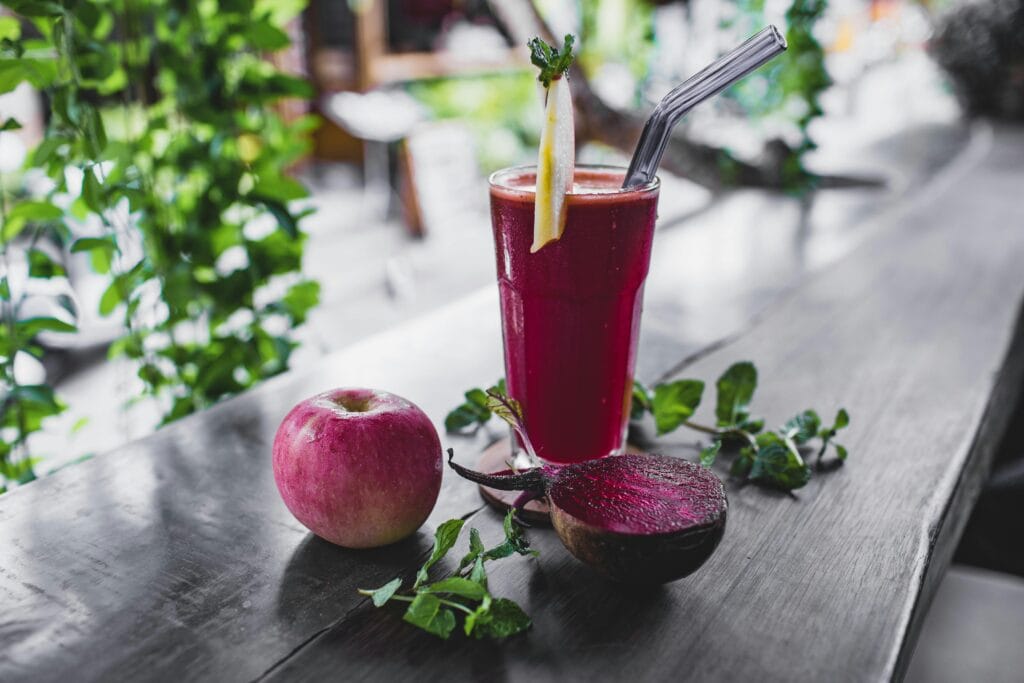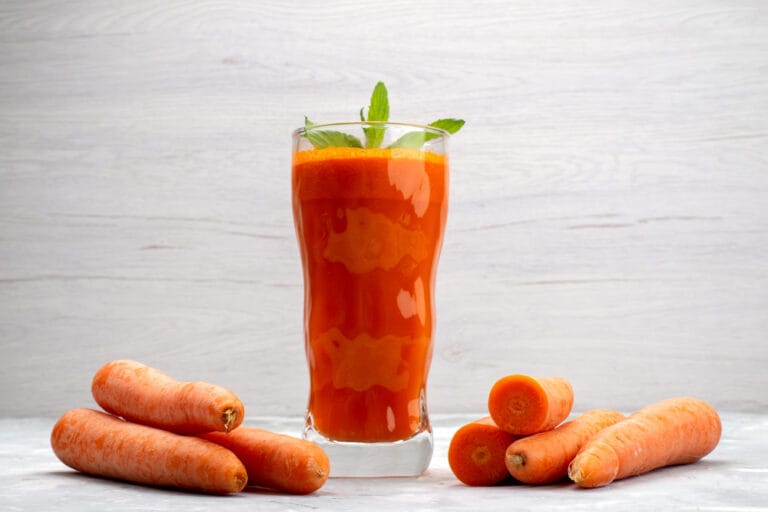FREE SHIPPING OVER $50
This Everyday Root Could Lower Your Blood Pressure Naturally—Doctors Are Talking About It

It is a silent epidemic that affects millions of people, often without a single noticeable symptom until it is too late. High blood pressure, or hypertension, is a leading risk factor for heart disease, stroke, and kidney failure. While prescription medication is a common and often necessary tool, many people are looking for natural, sustainable ways to manage their numbers. You may have heard advice about cutting back on salt or exercising more, but a groundbreaking nutrition trend is now gaining serious traction in the medical community. Doctors are now talking about the powerful blood pressure-lowering effects of a humble, everyday root vegetable.
This article will pull back the curtain on this simple food, explain the incredible science behind its powerful effects, and give you a simple guide on how to incorporate it into your diet to naturally support your cardiovascular health. It is a surprising and empowering truth: the key to lowering your blood pressure might just be hiding in your grocery store’s produce aisle.
The Secret to Lower Blood Pressure: The Power of the Beet
The everyday root that has doctors and nutritionists buzzing is the beetroot. While it may seem like just another vegetable, its unique nutritional profile gives it a powerful ability to impact your blood pressure. The secret lies in a compound you might not expect to find in a vegetable: nitrates.
Beetroot is one of the richest sources of dietary nitrates on the planet. When you consume them, your body gets to work, converting these nitrates into a potent molecule that is a game-changer for your blood pressure. This molecule is called nitric oxide. And its role in cardiovascular health is so important that it earned a Nobel Prize for the scientists who discovered its functions.
The Science Behind the Color: How Beetroot Fights Hypertension
The science of how beetroot works is a fascinating journey that happens inside your body. It is not a quick fix but a steady process that supports the very systems that control your blood pressure.
1. The Nitrate-to-Nitric Oxide Pathway
When you eat beetroot, its high concentration of nitrates is absorbed into your bloodstream. Once there, they are converted into nitrites by friendly bacteria that live in your mouth. This is the first crucial step in the process. The nitrites then travel to your stomach, where they are converted into the star of the show: nitric oxide.
2. Nitric Oxide: The Master Vasodilator
Nitric oxide is a powerful vasodilator. This means it has the ability to relax and widen your blood vessels. Think of your arteries and veins as a series of highways. When those highways are narrow and constricted, blood pressure rises because the heart has to work harder to push blood through them. Nitric oxide signals your blood vessels to widen, creating more space and reducing the resistance to blood flow. This naturally and effectively lowers your blood pressure without the need for medication. This is a mechanism that has been studied extensively, with clinical trials showing a direct link between dietary nitrate consumption and reduced blood pressure.
3. Supporting Overall Cardiovascular Health
Beyond its direct effect on blood pressure, beetroot’s rich antioxidant content helps to reduce inflammation and oxidative stress throughout the cardiovascular system. Both of these are key contributors to the hardening of arteries and heart disease. By fighting these internal threats, beetroot provides a holistic layer of protection for your heart and blood vessels, ensuring their long-term health and functionality.
What Doctors and Researchers Are Saying
The science on beetroot and blood pressure is so compelling that it has moved out of niche nutrition circles and into mainstream medical discussions. The American Heart Association and numerous medical journals have published articles and studies detailing the blood pressure-lowering effects of beetroot juice.
One study found that participants who drank a single glass of beetroot juice daily experienced a significant reduction in their systolic blood pressure within just 24 hours. Long-term studies have shown that this effect is sustained with regular consumption, making it a viable and natural strategy for managing hypertension. The consensus among doctors is that while beetroot is not a replacement for prescribed medication, it can be a powerful and effective complementary tool in managing blood pressure.
How to Add Beetroot to Your Diet: Simple and Delicious Ideas
If you are ready to put this powerful root vegetable to work for your health, here are some simple and delicious ways to make it a part of your daily routine.
- Beetroot Juice: This is often considered the most effective way to get a concentrated dose of nitrates. Look for fresh, organic beetroot juice or make your own at home with a juicer. Mix it with apple, ginger, or carrot juice to improve the flavor.
- Roasted Beetroot: Roasting brings out the natural sweetness of beets. Simply chop them up, toss them in a little olive oil and your favorite herbs, and roast them until they are tender. You can enjoy them as a side dish or add them to salads.
- Add to Smoothies: For a quick and easy way to get your daily dose, add a small piece of raw beetroot to your morning smoothie. It pairs well with berries, spinach, and bananas.
- Grate It Raw: Grate raw beetroot and add it to your salads or sandwiches for a pop of color and nutrition.
- In Soups: Beetroot is the star ingredient in classic borscht, but you can also add it to other soups for a hearty and healthy boost.
A Holistic Approach to Blood Pressure Management
While beetroot is a powerful ally, a truly healthy heart requires a holistic approach. No single food can be the entire solution. Here are other crucial lifestyle changes that doctors recommend for managing blood pressure naturally.
- Reduce Sodium Intake: Sodium causes your body to retain water, which increases the volume of blood and, in turn, raises blood pressure.
- Increase Potassium-Rich Foods: Potassium helps to balance the effects of sodium by relaxing the blood vessels and helping your kidneys excrete excess sodium. Foods like bananas, sweet potatoes, and spinach are excellent sources.
- Prioritize Regular Exercise: Physical activity strengthens your heart, allowing it to pump blood more efficiently with less effort, which lowers the force on your arteries.
- Manage Stress: Chronic stress can lead to a rise in blood pressure. Practice stress-management techniques like meditation, yoga, or deep breathing exercises.
Conclusion
High blood pressure is a serious health condition, but the journey to manage it does not have to be one of fear and confusion. The powerful connection between simple foods and cardiovascular health is a beacon of hope. The simple, everyday beetroot is a testament to this truth, providing a science-backed, accessible, and natural way to lower your blood pressure. By understanding the incredible role of nitrates and nitric oxide, you are not just gaining information; you are empowering yourself to take control of your health. By making a conscious effort to include this simple root in your diet, you can build a more resilient cardiovascular system and pave the way for a longer, healthier life.
Related Articles
- Men Over 50: Eat These 10 Protein-Packed Foods Daily to Stay Strong, Lean, and Energized
- The Protein Myth: 10 Plant Foods That Build More Muscle Than Meat—Sports Nutritionists Say You’ve Been Lied To
- Feeling Foggy? These 8 Brain-Boosting Foods Could Sharpen Your Mind—Dietitians Approve
- 15 Ancient Spices That Fight Aging—Science Finally Confirms What Our Grandparents Knew
- 10 Cancer-Fighting Foods Every Woman Over 40 Should Be Eating—Backed by Science







